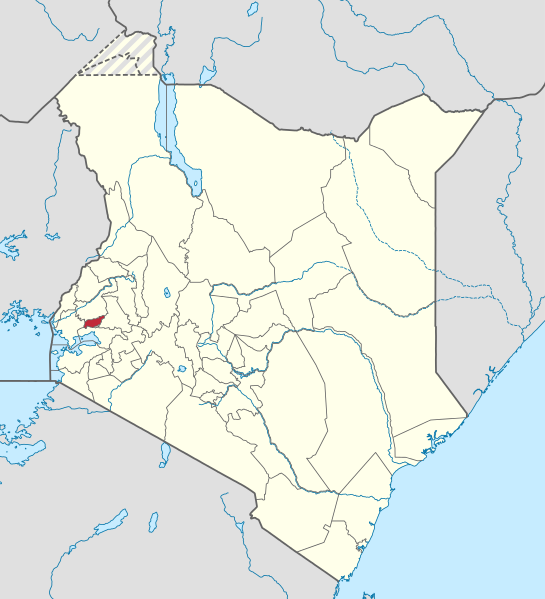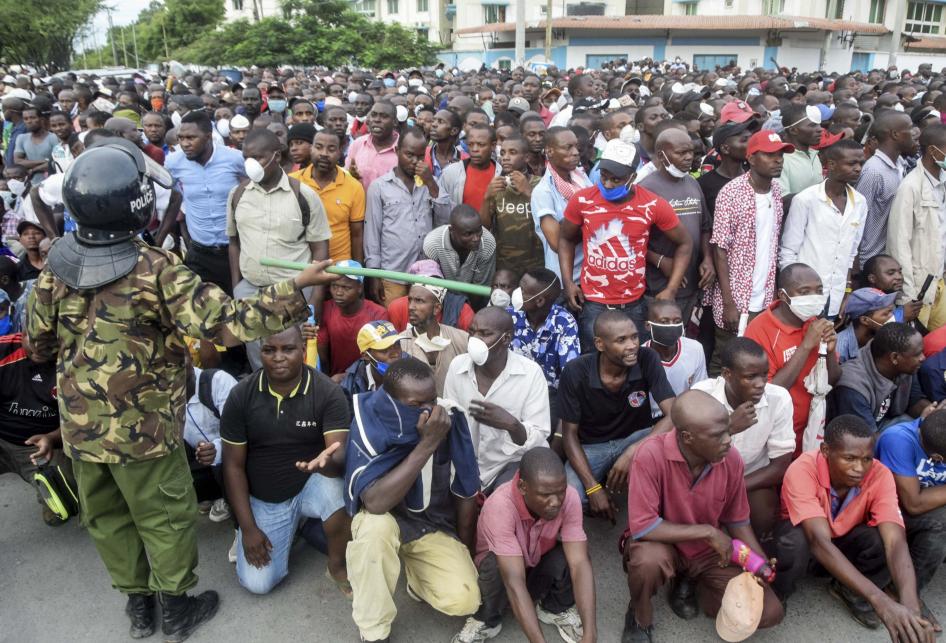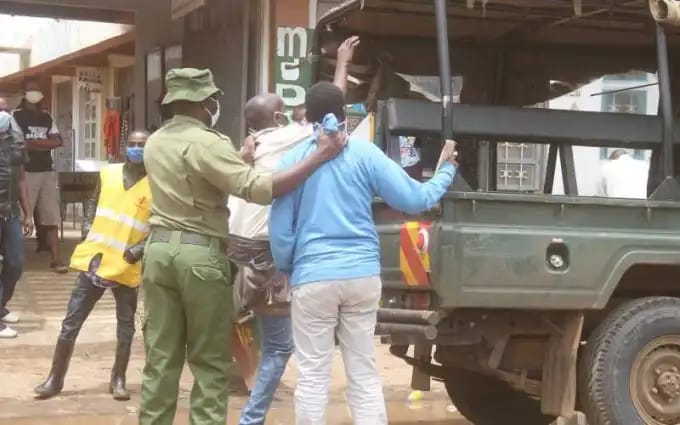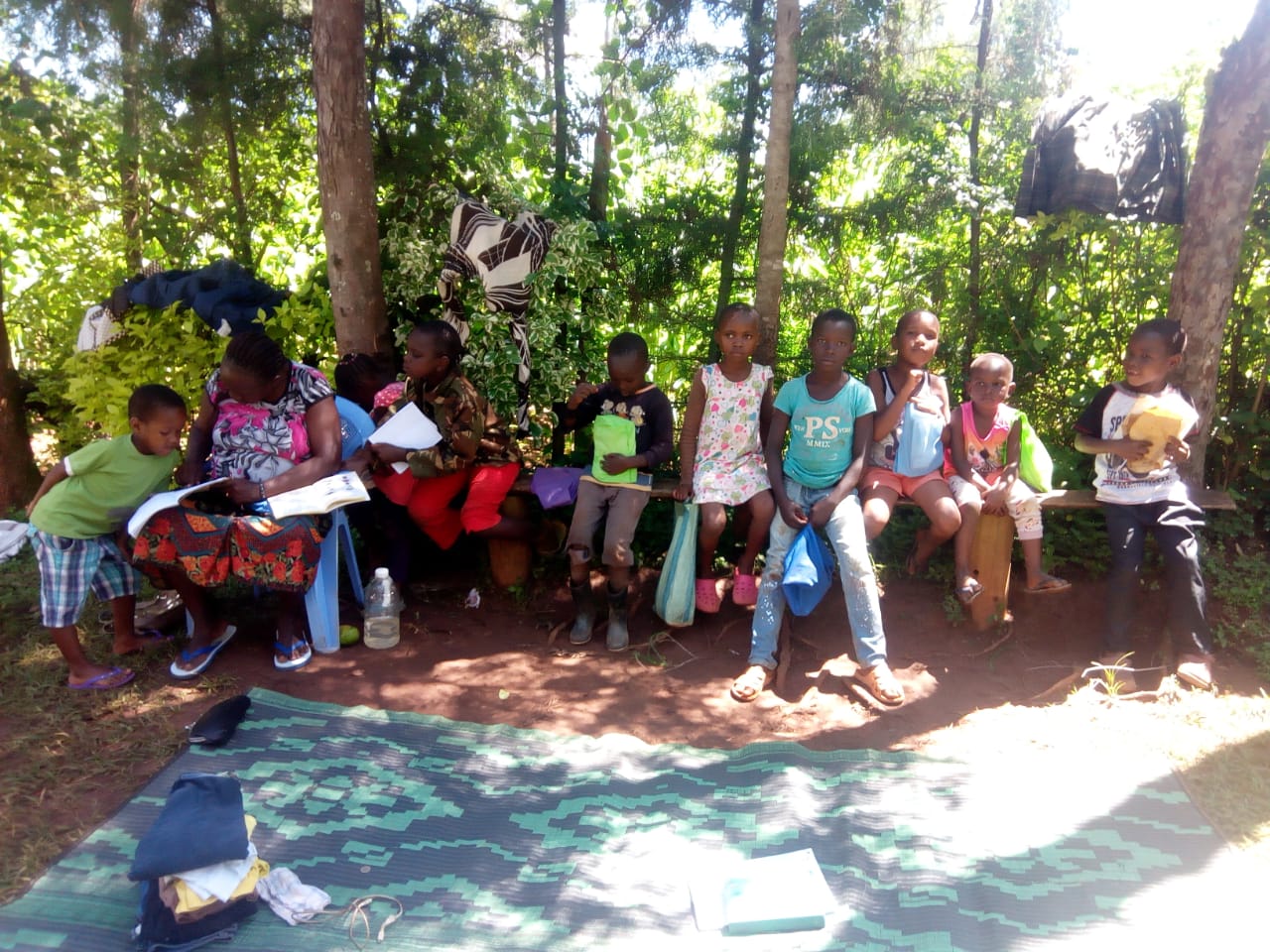By Winne Linnet
It is near the end of the second month since COVID-19 invaded our country. With the arrival of the pandemic also came the fear of what could happen next. Kenya is a beautiful country with agriculture as its backbone, known all over the world for producing various kinds of produce among them flowers and tea. Our economy is totally dependent on produce. On March 15th 2020, a national address by the president Uhuru Muigai Kenyatta, summoning the closure of all schools until further notice, brought to a halt all learning. The week after, the impact of restrictions on workers resulted in massive adjustments to the major sectors of the economy. Life will never be the same for all Kenyans both young and old.
I am a resident of a small town called Luanda within the Vihiga County. A beautiful county. I am a student at a nearby university, excited by my normal routine campus life, preparing for the end of semester exams. Covid-19 took this feeling away.

Vihiga County may be seen in Red in the West of Kenya. Image from Wikipedia
Since the beginning of the outbreak a lot has taken place, with new measures making life take a new turn to reduce the spread of this dreaded virus. The tune of the day is washing hands with alcohol-based sanitizer, social distancing and above all staying in our homes. The government encouraged working online so as to reduce interactions in work places, the list includes also not going to church or any public ceremonies, even funerals.
The need to refrain from social gatherings isn’t being accepted by some villagers, who still want to attend funerals despite the very little time allocated and it being strictly guarded. The transport sector was not left behind: the airport activities were also put to a halt to prevent the spread or foreigners coming in who could possibly be infected. Road transport was also affected too and only half the number of people is allowed to board the matatus (local busses) than before. We are determined to do away with this virus.
The question now is: how can a person who totally depends on income from being a bus conductor survive now that he can no longer do his job and is not getting paid?
Fearing that the spread could not be contained, stringent measure totally locked down the cities of Mombasa, Nairobi and Mandera. The commotion caused after the 1st causality was discovered in the capital city of Nairobi was an announcement that brought about the reunion of family members living away from each other. Some people hurriedly left cities to return to their rural homes so as not to be infected. In the countryside, everyone seems to have his or her own understanding of the disease. Some believe it is just like any other flus while others understand it is as serious as it seems

Picture of Kenya police trying to hold back passengers boarding boats leaving Mombasa on the 27th March 2020 (C) AP Photos
I speak with the people of my village to sensitize them on the need to stay at home and avoid contact with others. They answer by asking how then will they get a meal to sustain themselves. Where should a hungry person get money to buy a hand-sanitizer?
The elderly have a tale of their own. They wonder what Covid-19 is in the first place. My grandma said “What is this quarantine thing, if I don’t interact with the few friends I have then I will die.” I understand her, having myself lived with an old woman for five years in Lebanon, I know that what she says is true. She is at the end of her life, and only interacting with those that love her gives her meaning.
The village is filled with young people as well, teenagers and children walking around in the name of quarantining. In the quest to help youngsters study from home, the government mandated online studies, but is it working in my village?
That’s the bottom line question here. Ever since the beginning of quarantine my village is out of electricity because of a faulty transformer. With no electricity how can we even charge our phones, to be updated with what is happening in the country, let alone study? And that goes for those who normally have access to electricity. What about those without?
This pandemic is really an eye opener of the devastating effects the virus can have on the life of the local mwananchi. The government is trying its best to help where necessary but is it effective? Authorities have also tried distributing food stuffs to the most vulnerable groups but it often does not reach these groups. The reality on the ground is that Covid-19 has opened our eyes to show that even more work needs to be done.
I go door to door to help provide information on Covid-19 with other volunteers. Thanks to the good work of the governor of Vihinga, who distributed masks, some good work has been done to prevent the spread. Education is vital to teach how masks should be worn and how to take care of them for those who can actually can afford to buy them. Water is another issue to be considered: do all areas in this beautiful country of mine have enough water for hand washing?
Some people have improvised taps and tanks to help the government, showing how very innovative ideas are emerging to help others. In my village however, unpleasant experiences have taken place too. The idea of quarantining isn’t welcome to everybody, some people just cannot do without the local brew. What seems serious to one is not always to another. For this, as much as people know how much is at stake, they do no care. However, no one wants to be sick! For instance, where a nurse in a hospital nearby claimed to have symptoms of Covid-19 everybody in the hospital ran out from the nearest door fearing for their health!

Police in Luanda arresting men who are breaking the curfew. Picture courtesy of Winnie Linnet
We all know that it is serious, but some will still take the risk for things they value more. Curfew, enforced from 7pm, is not only broken by man going for a brew, but also by that mama coping with frustrations of life, with no meal for her or her family. At late hours, she may go to get a kibanda to buy mboga or fruits for the family. How would we judge her if caught breaking curfew? It is not ignorance but rather inability to get necessities. We must not judge her harshly. We need to understand her plight. My neighbor for example sells necessities to women who come to her place to buy at late hours, because they got the little something by grace.
This is what a stroll in Luanda town on a normal day would look like, with people at full capacity, the need to squeeze yourself just to pass, shouts from every corner with people buying their different necessities.
When taking a walk in this devastating period, all is quiet. A few people hurriedly walk with face masks, hoping not to be noticed. Luanda is a town along the Kisumu Busia road, was known to be among the fastest growing towns, selling all kinds of goodies. Today it is silently sleeping low.
My family stays now stronger than ever. We believe in a God who can restore, so when the announcement of lockdown came, we were astonished but knew that we had to survive. Mum and dad struggle to make ends meet. Only mum works, a primary school teacher at a local school. She took the initiative to offer remedial studies free of charge to the village kids.

Image of children being taught free remedial studies near Luanda Village. Picture courtesy of Winnie Linnet
The life of a teacher is to give back to society, and that is what my mother does. She is also diabetic. She has to pick medicine from the hospital, her experience in the quest to get the medicine being more unpleasant than normal because of busy doctors and medical staff who fears getting too close to people. The sick and vulnerable have to bear with this. She understands. Her experience sheds light on what people who have other diseases are going through during this difficult period. Their cases are being handled slowly because of the dangerous situation.
The recent floods in Western Kenya have added to the harshness of the time. People are being told to move to higher regions but most people don’t own houses on higher regions, or don’t have relatives there that can host them… so where should they go?
This Covid-19 has emphasized the need for unity. We can strive together towards a common purpose: to erase Corona virus completely. It is possible by supporting one another, following health guidelines, helping others and spreading the message that God can restore, and He will restore.
